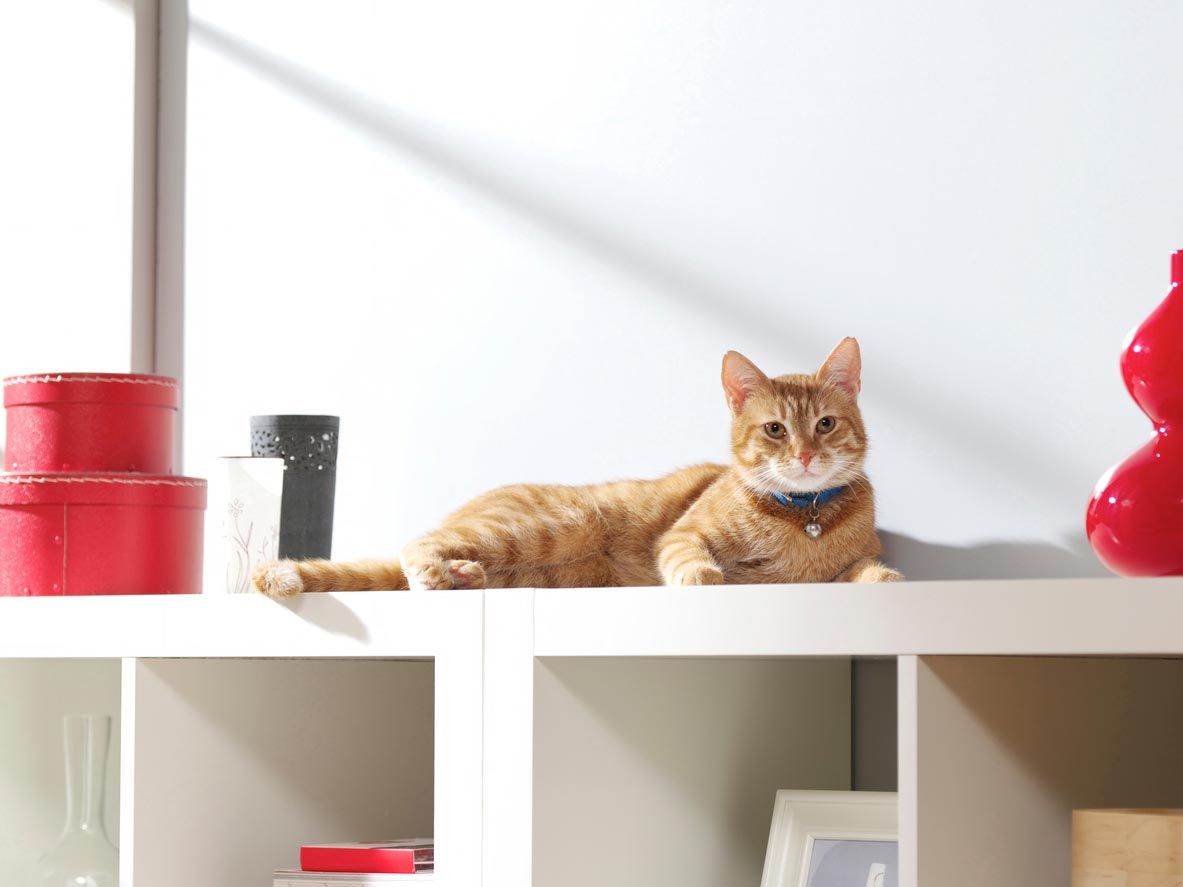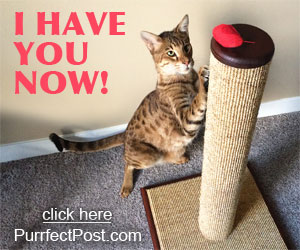Why Do Cats Knock Things Over?

Do you have a cat that seems to think it's great fun to climb on your desk and knock your glass off onto the floor? Are your knick-knacks at constant risk of being pushed off your shelves by mischievous feline paws?
You're not alone. Most cat owners have experienced this less-than-adorable feline trait.
Cats Love to Play
One reason cats may like to knock things off of high surfaces is that they love to play. Indoor life can get a bit boring for some cats. After all, when they were wild, they had something to do most of the time: hunt and catch food.
It might be interesting for a cat to knock an object off of your desk and watch it fall. It may even be a way for him to create his own play because now he can chase the object down and bat it around the floor for a couple of minutes.
Cats Love Attention
Another reason cats might learn to push items off of surfaces and onto the floor is that it gets their humans' attention. Again, indoor cat life can sometimes be boring, and if your cat thinks you're not giving him his fair share of your attention, he may seek out ways to attract it.
The first time your cat knocks something off of your desk or counter and you come running to see what happened, he learns that this activity gets your attention. Even if it's bad attention, it's still an interaction, and your cat may be craving that.
How Can You Keep Your Cat from Knocking Things off High Surfaces?
Knocking things off of shelves and countertops can be a dangerous pastime for cats. If your cat breaks glass and then jumps down to check out it, he could end up with glass in his paws. Not to mention the expense that replacing broken items can lead to for you.
So how can you train your cat to stop knocking things over?
- The first step to treating most feline behavior problems is to ensure that your cat is getting enough physical and mental stimulation through appropriate channels. Increase your interactive play time with him so he's getting enough attention from you and getting out any pent-up energy.
- Try to make the high surfaces in your home unappealing for your cat to jump onto by using double-sided tape, so he lands on something sticky when he jumps up there.
- Museum wax can be helpful for anchoring items into permanent positions on your shelves.
- If you see your cat eyeing something before pushing it off a desk or counter, make a noise to startle him. Placing a few coins in a soda can and taping the opening shut can work well.
-
Don't yell at or otherwise punish your cat. This can cause him stress which may lead to other undesirable behaviors, and it is also a form of reinforcement because it is giving him attention for the deed.
- An alternative to making a loud dissuading noise when you see your cat contemplating pushing an object over is to make an inviting noise to get his attention and then redirect him to a more desirable behavior. Throw a cat toy or offer him a petting session, and give him lots of praise for following the redirection. He will learn that he gets more attention for behaving rather than for pushing things over.
For more information about keeping your cat off counters in the first place, see this article: "How to Keep Your Cat off the Kitchen Counter."
Your cat isn't trying to make you angry by shoving things off the kitchen table, so try not to take it personally while you work toward training him to keep his pushy paws to himself.
You May Also Like These Articles:
Keeping Your Cat Active While You're Away
STOMP out Problem Cat Scratching
Training A Cat or Kitten to Use a Scratching Post
Why Some Cats Do Not Like Doors
How to Train Your Cat to Let You Sleep
Notice: Ask-a-Vet is an affiliated service for those who wish to speak with a veterinary professional about their pet's specific condition. Initially, a bot will ask questions to determine the general nature of your concern. Then, you will be transferred to a human. There is a charge for the service if you choose to connect to a veterinarian. Ask-a-Vet is not manned by the staff or owners of CatHealth.com, and the advice given should not delay or replace a visit to your veterinarian.





